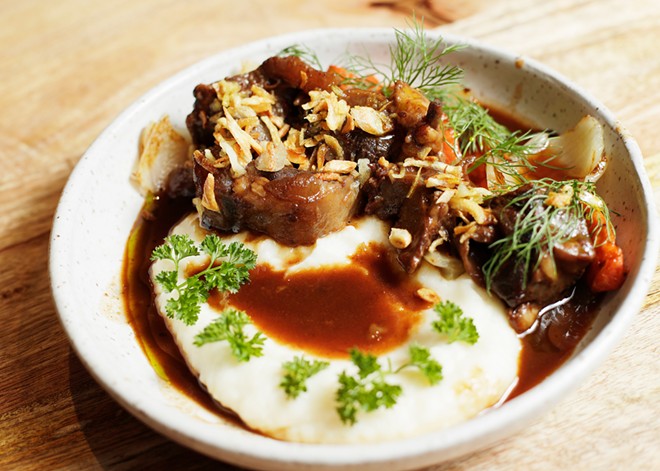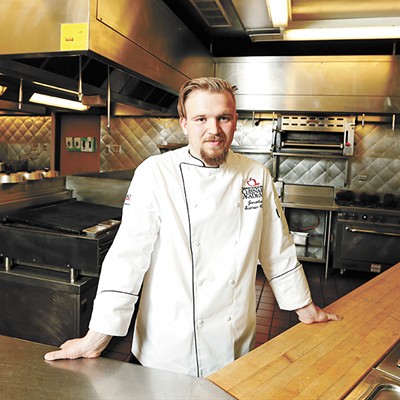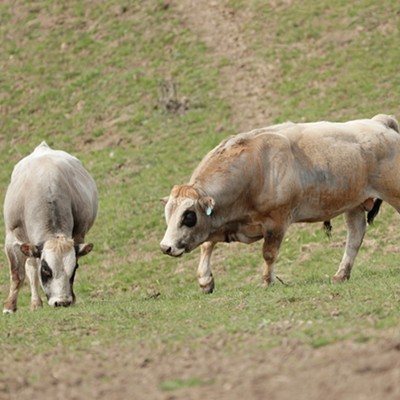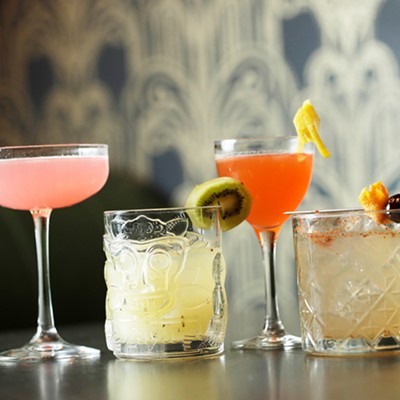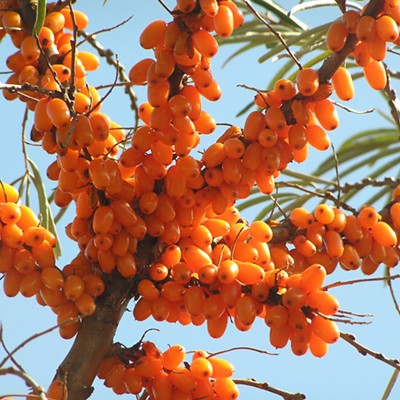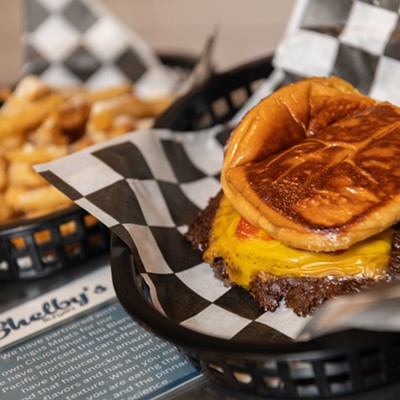If you like food, you've probably heard of Noma.
Copenhagen's Michelin three-star darling and top-rated restaurant in the world five times over is an elite campus of celebrity chefs and cutting-edge research. It's name-dropped in Manhattan, Tokyo and Mexico City. Once you've worked there, you can basically take your pick of swanky jobs.
In 2019, Jonathan Seaman-Cwik became the first graduate of Spokane Community College's Inland Northwest Culinary Academy to secure an internship at Denmark's culinary mecca. But after he completed the course, he quickly ditched the prestige.
Instead, Seaman-Cwik is now running a from-scratch, farm-to-table, hidden-est of gems restaurant in a sleepy 800-person town 30 miles north of downtown Spokane. It's an experiment in local sourcing, efficiency, creativity and skill — values chef René Redzepi, founder of Noma, would surely be proud of.
The Seaman family bought Lakehouse Bar and Grill in Loon Lake in late 2022, opening officially in January 2023. For the past year, Lakehouse has been Seaman-Cwik's responsibility, experimentation station and playground. He's had to adjust to local tastes, broken equipment, rising food costs and a tiny team of employees. But his mantra has never wavered.
"Whatever we make, we make here," he says.
That applies as much to the house-made ranch as it does to the beef and pork raised a mile or two down the road. Seaman-Cwik buys most ingredients from neighbors, many of whom have small farms, greenhouses, gardens and coops. He prepares all the food himself, creating high quality, hyperlocal, sometimes expensive plates. He has some local regulars, but he mostly relies on people to come from Spokane or Deer Park to seek out his food.
It's an ambitious plan. But Noma made a name for itself by turning the strange and impossible into the commonplace. It brought fermentation out of obscurity and onto TikTok. It helped popularize foraging. And Noma created a place that people don't just drive to but fly to from all over the world.
So maybe this Noma grad is on to something, too. Maybe dining out will soon mean ditching downtown to get as close as possible to the source of our food. Maybe small rural communities will be the hotbeds of innovation and farm-fresh meals. Or maybe, just maybe, Seaman-Cwik is completely loony.
Stepping into Lakehouse Bar and Grill feels as relaxed as popping into your favorite resort town cafe. Loon Lake is a lake town, after all, and its population triples for the summer months, which is nice for business.
The old building is round and blue, just one story, with Christmas lights strung from the eaves all year round. Inside, the host counter is a vintage bus bumper, and there's faux paneling on the walls. The wooden signs that moms usually love hang above the booths — one is shaped like a seashell, another has the word "relax" in black loopy lettering. The only Scandinavian influences are the clean, straight lines and light wood accents.
The menu is equally unassuming. For breakfast, grab an egg scramble with ham and cheese ($11.50) or with smoked steelhead and capers ($13.50). Biscuits and gravy ($6) come with house-made sausage. If you're feeling extra fancy, grab a mimosa ($6) with a prime rib hash ($18.50) or chicken fried steak breakfast ($13.50).
Dinner features cocktails made with locally distilled liquors. Small plates range from baked mac and cheese ($8.50) to wilted arugula salad ($9) to the fan-favorite stuffed mushrooms ($10.50) topped with red pepper jam. The braised beef entree ($32) features beef shank from Lone Crow Ranch down the street and carrots that almost steal the show.
Vegetables get as much attention as the meats — the potatoes under the pork schnitzel ($24) may look simple, but they've got some bacon-y, herby wizardry happening. The from-scratch soups rotate daily, and the menu suggests taking a batch or two home so you don't have to cook tomorrow. So thoughtful, no?
The magic of Lakehouse isn't the magic of Noma. Lakehouse isn't a Nordic wet dream or fanciful food laboratory. It serves meat and potatoes and sandwiches. But Seaman-Cwik has the control over technique and sourcing that allows him to transform simple ingredients into their richest, deepest, most nuanced flavors.
To find the best ingredients, chefs must intimately know the agricultural cycle of their local area. In Denmark, life at Noma is divided into three seasons — summer vegetables, autumn forage and game, and winter seafood. During his internship from June to October, Seaman-Cwik studied the full vegetable season and half the forage season.
For much of the summer, Seaman-Cwik spent days doing repetitive tasks like smashing plum pits. Then, he graduated to running his own station, the onion soup station. Lest you think this was a small task, Seaman-Cwik slow roasted onions in dashi overnight, strained the broth, carved the onions into bowls, refilled them with gelatin-infused broth that set into jello, and topped it all off with black currant wood oil, salted whipped cream and toasted beech nuts. Then he did it all again the next day.
But the most instructive part of his entire internship? A week of cooking dinner for the entire Noma staff.
"I learned a bunch of stuff there. But when you do the staff meal, you're just cooking regular food for these ridiculous chefs," he says. "I remember talking to the sous chef. He said, 'As long as everything is salted well, and proper cooking technique is applied, it doesn't matter what it is. Everyone will love it.' That's the No. 1 thing that stuck with me, which is so simple. But that's basically what makes food good or not good."
When Seaman-Cwik came back to Spokane in early 2020, he faced a restaurant industry increasingly pummeled by the pandemic. He helped James Beard nominee Tony Brown open Eyvind (now Ruins) in January 2020, only to lose his job to COVID shutdowns a couple months later. He stayed employed by mowing lawns, baking bread with Shaun Thompson Duffy and Victor Levin at The Grain Shed, brewing beer at Selkirk Abbey and Hidden Mother Brewery, and weeding garden beds for New Heritage Farms in Spokane Valley.
Working on a local farm helped reinforce Seaman-Cwik's understanding of Inland Northwest seasons. He now sources a lot of his produce from New Heritage. And after he opened Lakeside, more local producers started knocking on the door.
Now, the pigs he uses for bacon and sausage are raised on the other side of the highway. Tomatoes come from a friend's geothermal greenhouse in Deer Park (geothermal means Seaman-Cwik will get ripe fruit in May instead of waiting until August). Neighbors near Springdale decided to sell their extra chicken eggs to the restaurant. Two foragers descend the local mountains every so often and bring Lakehouse especially funky and urgently fresh ingredients. Even the plates come from KJ Pottery, a local potter in Hillyard.
"Sometimes some of these places are so small that they're outrageously expensive," Seaman-Cwik says. "I totally get it. But also I can't buy too expensive stuff because people can't afford it."
So instead of buying from cheaper sources, Seaman-Cwik buys the more affordable produce or cuts of meat from these high-quality producers.
"It's really easy to make caviar taste good," he says. "But we have to figure out what to do with onions and potatoes and carrots and beef shank. That makes you be creative."
Seaman-Cwik is no stranger to forced creativity. He turned the challenges of COVID into the opportunity to learn new skills. When panic and restrictions eased in 2021, he rejoined Tony Brown and Peter Adams in the kitchen at Ruins.
"I would have probably worked there forever," Seaman-Cwik says.
But instead, in true Noma fashion, he chose to create for himself his biggest challenge yet.
"Tony kept telling me, 'Don't buy a restaurant. It's not a good idea,'" he says. "But then I bought the restaurant. And here we are."
Lakehouse Bar and Grill • 3998 Highway 292, Loon Lake • Open Mon-Thu 4-8 pm, Fri 4-9 pm, Sat-Sun 9 am-9 pm • theloonlakehouse.com • 509-644-0077

